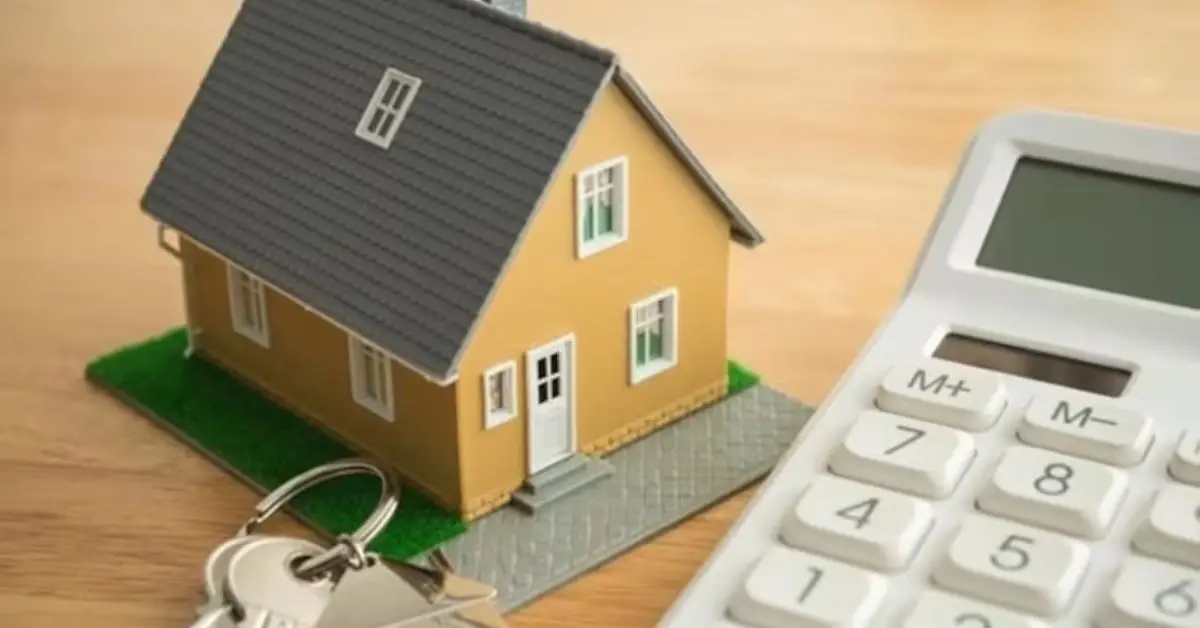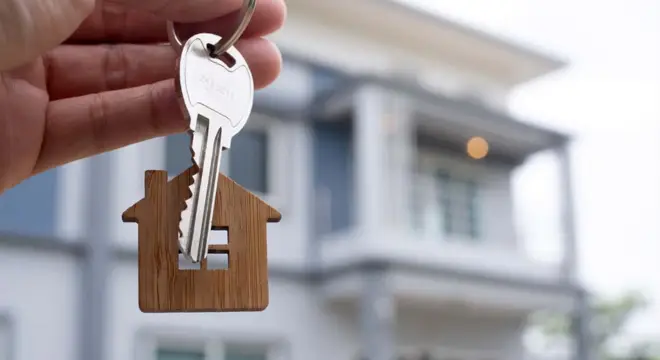Top 5 Essential Dos and Don’ts Every Homebuyer Must Know in 2025
If you’re thinking about buying a home in 2025, you’re stepping into a market that’s far from the usual. Interest rates have climbed higher than most expected, and home prices aren’t falling as quickly as some hoped. I know it can feel overwhelming — like the goalposts keep moving just when you’re ready to make your move.
But here’s the thing: buying smart this year isn’t about rushing or hoping for a perfect deal. It’s about being prepared, knowing what to watch for, and avoiding the common traps that catch even experienced buyers off guard. I’ve seen plenty of folks get burned by ignoring a few simple rules — rules I’m about to share with you.
So, before you dive into listings or get caught up in the emotion of “the perfect home,” let’s take a clear-eyed look at the dos and don’ts that actually make a difference in 2025. Because when you know exactly what to do — and what to avoid — you’ll save time, money, and a lot of unnecessary stress.
The 5 DOs That Will Make Your 2025 Home Purchase Smarter
DO 1: Lock in Your Budget and Goals Before You Search

Buying a home is a big financial commitment. Before you even start browsing listings, it’s crucial to set a clear budget. That means more than just the mortgage payment—factor in property taxes, insurance, and ongoing maintenance costs. Many buyers get stuck dreaming about homes out of their price range because they don’t do this homework upfront.
- Use Debt-to-Income (DTI) calculators to understand how much mortgage you can realistically afford without stretching yourself thin.
- Don’t forget to include emergency savings in your plan to cover unexpected expenses after buying.
This step will avoid emotional overspending and keep your home search focused and practical.
Where to check: For more on budgeting, you can explore Harvard’s housing affordability report and Redfin’s latest market stats.
DO 2: Get Pre-Approved Early
A mortgage pre-approval is your ticket to serious negotiations. It tells sellers you’re ready and able to buy, which can be the difference between winning a bidding war or losing out.
- Start by talking to multiple lenders to compare rates and terms.
- Doing this early won’t harm your credit much if done within a short window (usually 30 days).
- Having a pre-approval letter in hand gives you confidence and leverage when making an offer.
If you’re considering different payment options, like buying with cash, it’s worth reading this article on buying a home with cash in today’s market: smart or risky? to understand the pros and cons before you commit.
This shows you as a prepared buyer and speeds up the process once you find your dream home.
DO 3: Stay Flexible About Location and Features
In 2025, the real estate market is shifting. Instead of fixating on one neighborhood or perfect features, be open to exploring:
- Up-and-coming neighborhoods where prices might be more affordable and poised for growth.
- Homes that need some TLC but can be renovated over time to suit your taste.
- Local online forums like Reddit real estate groups or Facebook community pages can give you insider info on market trends and hidden gems. If you’re open to exploring new construction homes as part of your flexible options, don’t miss these 10 must-know tips before buying a new construction home — it’ll help you spot the right deals and avoid surprises.
Being flexible expands your options and could help you land a better deal than competitors stuck on rigid criteria.
DO 4: Leverage Assistance Programs & Alternative Financing
There are many programs designed to help buyers like you reduce upfront costs or access better financing options:
- Look into FHA, VA, and USDA loans if you qualify—they often have lower down payment requirements.
- Many states and cities offer grants and down payment assistance programs to first-time buyers or those in targeted areas.
- Visit official resources like the HUD website to explore programs available in your region.
Using these resources can lower your upfront expenses and make homeownership more affordable than you might expect.
DO 5: Build Your Support Team
Buying a home is complex, and no one should do it alone. Assemble a team of trusted professionals:
- A reliable real estate agent who knows the local market and understands your goals.
- A mortgage broker or lender who can guide you through financing options.
- A qualified home inspector to uncover potential issues before you commit.
Also, ask your agent for a buyer’s net sheet—this document outlines all expected closing costs so you’re not surprised at the last minute.
A strong support team saves you time, money, and helps avoid costly mistakes that many buyers make.
The 5 DON’Ts That Could Cost You in 2025
DON’T 1: Skip Financial Prep and Emergency Savings

Look, I get it—buying a home feels expensive already, and you might be tempted to spend every last penny on the down payment. But don’t make the mistake of ignoring your financial prep and emergency savings.
- Keep 3 to 6 months’ worth of living expenses saved even after your purchase.
- This safety net helps cover unexpected repairs, job loss, or other emergencies without derailing your finances.
- Skipping this can lead to serious financial strain when life throws curveballs.
Having this buffer will give you peace of mind and keep you from financial stress down the road. Especially with fluctuating mortgage rates and changing housing market conditions, as Business Insider’s 2024 housing outlook explains, being financially prepared is more important than ever.
DON’T 2: Let Emotions Rush Your Offer
Buying a home is emotional—no doubt about it. But if you let those emotions dictate your offer, you could end up overpaying.
- Always base your bids on comparable sales data (comps), not just how much you love the house.
- In a cooling or shifting market, prices can drop or stall quickly, so don’t get caught bidding above market value.
- Taking a step back to analyze data helps you make a smart, competitive offer without buyer’s remorse.
I’ve seen buyers rush and lose thousands simply because they didn’t check the numbers first. Also, if you’re juggling buying and selling at the same time, be sure to check out these 8 costly mistakes to avoid when buying and selling your home simultaneously — it’s easy to get overwhelmed, and this guide can save you from serious pitfalls.
DON’T 3: Ignore Debt-to-Income Ratio
Your debt-to-income (DTI) ratio is a critical factor lenders use to approve your mortgage and determine your interest rates.
- If you have high debt, try to pay it down before applying for a mortgage.
- Lower debt improves your chances of approval and can score you better loan terms and interest rates.
- Don’t overlook this, or you might face rejection or higher monthly payments than expected.
It’s a simple but powerful way to strengthen your financial position.
DON’T 4: Overlook Hidden and Ongoing Costs
A big home purchase isn’t just the upfront price—you need to plan for ongoing expenses that many buyers miss.
- Factor in property taxes, homeowners association (HOA) fees, insurance, and utilities.
- Ask the seller for a cost history of the past year to get realistic estimates.
- Ignoring these costs can blow your budget and cause stress after moving in.
You want your budget to reflect the full picture, not just the mortgage payment.
DON’T 5: Skip Home Inspection or Rely on Seller’s Report
Never skip a professional home inspection, even if the seller provides a report.
- Hire your own inspector who has no conflicts of interest.
- Inspectors can uncover hidden problems like foundation issues, mold, or outdated electrical wiring.
- With rising contractor rates, repairs can get expensive fast—this step protects you from nasty surprises.
Trust me, this is a small upfront cost that can save you thousands in the long run.
Green and Smart Home Features to Look For in 2025

When you’re buying a home today, it’s not just about how it looks — it’s also about how smart and efficient it is.
- Energy-efficient appliances like refrigerators, washers, and HVAC systems can lower your utility bills significantly.
- Solar panels aren’t just good for the planet; they can reduce your electricity costs and even increase your home’s resale value.
- Smart thermostats and home automation allow you to control heating, cooling, and lighting remotely, making your home more comfortable and energy-efficient.
On top of saving money in the long run, these features reduce your environmental footprint. Plus, many governments offer incentives or rebates for installing eco-friendly upgrades — so don’t miss out on those.
Eco-friendly homes are becoming the new standard. If you want your investment to be future-proof and save money, focusing on green features makes a lot of sense.
Common Homebuyer Scams and How to Avoid Them
Buying a home can be exciting, but unfortunately, there are scams out there that prey on hopeful buyers. Here’s how you stay safe:
- Watch out for fraudulent listings that show properties that don’t exist or aren’t really for sale.
- Be cautious of fake agents who might not be licensed or legitimate. Always verify credentials through your state’s real estate commission.
- Beware of title scams, where someone tries to claim ownership of the property you’re buying or tries to steal your money during closing.
Always use trusted platforms for listings and communicate through verified agents. If something feels off, trust your gut and report suspicious activity to local authorities or real estate boards.
Protecting yourself from scams saves you time, money, and heartache. It also positions you as a smart, well-informed buyer.
When to Walk Away from a Deal
Sometimes, the smartest move is knowing when to say no.
- If your home inspection reveals serious issues that the seller won’t fix, it’s often better to walk away than face expensive repairs later.
- Pay attention to red flags in negotiations, like sudden last-minute changes or unwillingness to provide information.
- Separate your emotions from your decisions — it’s easy to fall in love with a place, but staying rational will protect your investment.
- Know your limits and priorities so you don’t get stuck in a bad deal just because you feel pressured or emotionally attached.
Walking away can save you from costly mistakes and stress. It shows you’re in control and serious about making a smart purchase.
Buy Smart, Live Happy in 2025
Buying a home can feel overwhelming, but if you plan well, prepare financially, stay flexible, and lean on trusted experts, you’re already ahead of the game. Remember, combining these dos and don’ts will help you avoid common pitfalls and make smarter choices that fit your unique situation.
If you’re ready to take the next step, start by using mortgage calculators, checking local listings, and exploring assistance programs in your area. These tools can make your homebuying journey smoother and more confident.
I’d love to hear from you: What’s the biggest challenge you’re facing in buying a home right now? Drop a comment below and let’s talk!
For more tips, guides, and expert advice, visit Build Like New — your trusted partner in making smart homebuying decisions.
Disclaimer: This article is for informational purposes only and does not constitute financial or legal advice. Always consult with a qualified professional before making major homebuying decisions.


